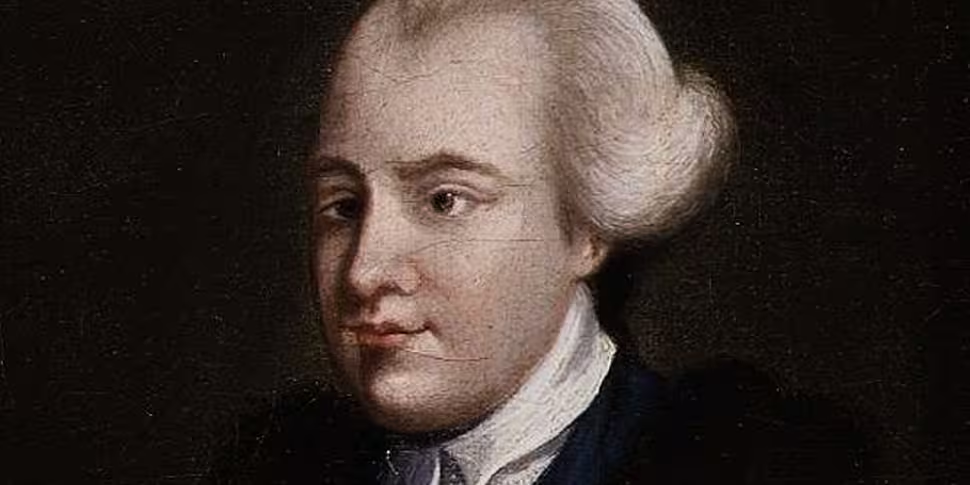John Wilkes (1725-1797) was a remarkable radical figure, even celebrity, during the 18th century, who successfully struggled for freedom of the press, the right to privacy, due process and representation, all through the most colourful and scurrilous means and despite being the ugliest man in England, a duelist and a libertine of the first order. He also held advanced views on religious toleration, far beyond the standards of his time, and was an inspiration to the American founding fathers.
Son of a London, distiller, he married the wealthy Mary Meade and acquired a Manor in Aylesbury, Buckinghamshire. He soon became a close friend of Thomas Potter, the extremely unpious son of the Archbishop of Canterbury and an MP. In 1754, he ran unsuccessfully for parliament, but—taking care to be more assiduous in bribing the voters this time—he was elected MP for Aylesbury in 1757. (He declared that he would pay two guineas per man and ‘three or even five’ if necessary.) It was as a member of parliament that he began to combine politics and libertinage. He joined the Sublime Society of the Beefsteaks (slogan ‘Beef and Liberty’) and Sir Francis Dashwood’s notorious Order of the Friars of St. Francis of Wycombe better known as the Hellfire Club. The Hellfire Club met nightly in the George and Vulture Inn and twice monthly at Medmenham Abbey on the Thames. Many of the members were politicians and figure in Wilkes’s story.
Wilkes had aligned himself with William Pitt the Elder and favoured his warlike policy. In 1762, he established the satirical and partisan paper The North Briton in opposition to the Prime Minister, Lord Bute’s, The Briton. As with ‘West Brit’ in Ireland, ‘North Briton referred to the number of Scots in the administration. On April 19, 1763, George III made a speech in favour of the Paris Peace Treaty that ended the Seven Years War. Pitt and his followers felt that the treaty was a betrayal of the country’s victory and an appeasement and restoration of power to their enemies. Although Britain received Canada, the treaty returned most of France and Spain’s other possessions, including much more lucrative ones. Wiles published number 45 of the The North Briton attacking the King’s speech, although he was careful to stress that he blamed the Prime Minister, Lord Grenville, for it. The king and his party moved quickly, and a ‘general warrant’ was issued for anyone who had anything to do with the ‘seditious libel’. As the names suggest, a ‘general warrant’ is a warrant to arrest anyone and search anywhere that the agents felt like and ‘seditious libel’ is a libel that threatens the state. In the end, the printing presses, next edition of The North Briton and arrested forty nine people, including Wilkes.
His trial was remarkable. His lawyer asserted that the manner of and evidence presented for his arrest was a violation of due process and Wilkes made a stirring speech about the need to ‘determine at once whether English Liberty shall be a reality or a shadow.’ He especially mentioned the need to protect the ordinary man, exemplified by the printers that were arrested alongside him. The Court found for Wilkes and accepted his plea of parliamentary privilege and he was escorted home by thousands of all classes to cries of ‘Wilkes and Liberty!’. Wilkes and others subsequently sued the state successfully for large sums. The majority in Parliament, unimpressed, voted to alter the definition of privilege to prevent future defences of this sort.
Wilkes was a celebrity. He was feted wherever he went. But the government had another plan to discredit him. By getting at Wilkes’s printer, Michael Curry, they found out that, besides printing up the offending North Briton in book form, Wilkes was planning a private printing of An Essay on Woman--an obscene parody of Alexander Pope’s Essay on Man—that he had co written with the now deceased Potter. The Earl of Sandwich, a former Hellfire Club member and inventor of the sandwich, read the poem to the House of Lords as part of their investigations and the resulting scandal led to Wilkes being expelled from the House of Commons (on January 20, 1764) and charged with obscene and seditious libel. This was in absentia, because Wilkes by this point had fled to Paris. Sandwich had multiple reasons to hate Wilkes. He was a member of the government, but he also, allegedly, hated Wilkes for a prank at the Hellfire Club. Wilkes is supposed to have hidden a baboon in a chest dressed as the devil. He pulled a string and the baboon is said to have jumped on Sandwich, who cried: ‘Spare me, gracious devil! You know I never committed a thousandth part of the vices of which I boasted. Take somebody else; they’re all worse than I am. I never knew that you’d really come, or I’d never have invoked thee!’
In any case, Wilkes was abandoned by his political colleagues, but not by the people who continued to cry ‘Wilkes and Liberty!’ Wilkes spent his exile recovering from duelling wounds—and evading the attempts by the government’s hired assassin to inveigle him into a further duel—seeing France and Italy and running up debts. The latter forced him back to England in 1768 and ran for parliament, despite his status as an outlaw. He quickly won his old seat in Middlesex and his victory was celebrated widely: mobs in London forced everyone to keep their windows lit and chalked 45 on everything, including the boots of the Austrian ambassador. Wilkes surrendered himself to the King’s Bench and was sentenced to two years imprisonment and a fine of 1000 pounds.
Rioting attended every aspect of the process—when his bail was revoked, there was a high speed carriage chase through London to an inn, where he appeared to rally his supporting mob before disappearing in disguise. While he was imprisoned, there was daily rioting. Troops fired on a demonstration of tens of thousands on May 10 killing seven and wounding 15, in what was called the ‘Massacre of St. George’s Fields’. May 10 was the first day of parliament, and there was speculation that he might be freed to attend. This was not the government’s plan. They expelled Wilkes as an outlaw. His electors voted him in again. This happened three times. Finally, parliament simply declared his opponent, Colonel Luttrell, the winner. It was during this time that the Wilkes industry exploded. Cups, teapots, pipes, snuffboxes, ribbons, badges, medals and candles all bore his name, ‘45’ or ‘Wilkes and Liberty!’.
Elected as Sherriff of Middlesex and London from prison, he was finally allowed to take his seat on his fifth election as MP for Middlesex. He served for a further 16 years, successfully ending the use of general warrants, ensuring greater freedom of the press (including from such warrants) and requiring parliamentary debates to be recorded verbatim, which had previously been a crime. He unsuccessfully pursued a campaign for religious toleration and opposed the war with the American colonies. He was very influential there, as the town of Wilkes-Barre (combined with the Irish radical lsaac Barré) and the name of his distant relation, John Wilkes Booth, attests.
In later life, he became more conservative, and opposed the French Revolution. During the 1780 anti-Catholic riots whipped up by Lord George Gordon (who later converted to Orthodox Judaism in Birmingham). As an official of the City of London, he personally ordered the militia to fire on rioters attacking the Bank of England. Wilkes, who had traded in anti-Catholic sentiment to considerable extent throughout his career--45 referred to the Jacobin uprising of 174--lost popularity with the people and eventually failed to run again for Middlesex in 1790. He died December 26, 1797.
Sources:
George Rudé, Wilkes and Liberty
Graham Finlay, from UCD's School of Politics and International Relations is on The History Slot with Sean Moncrieff every Tuesday at 3.30pm









